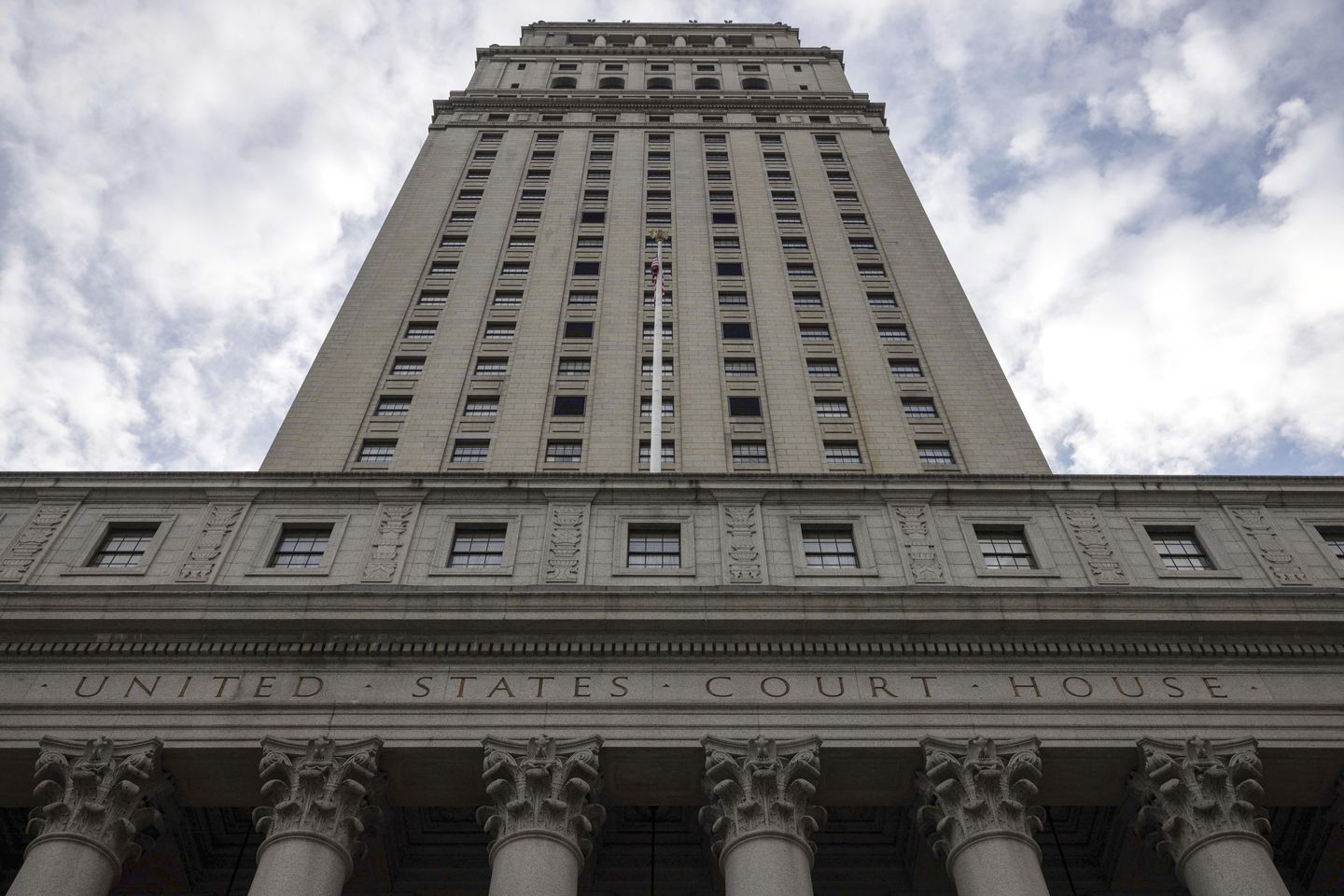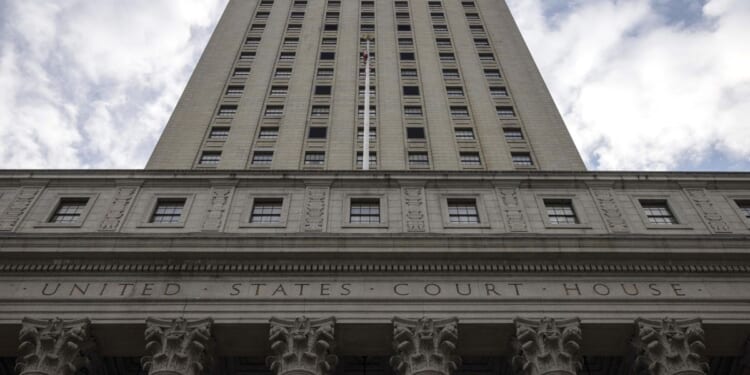
An alleged leader of Japan’s Yakuza gang was arraigned in a Manhattan federal court Thursday on charges of trying to sell weapons-grade nuclear materials to Iran, though the suspect’s ties to the international crime syndicate are being questioned by researchers who track the gang.
Federal prosecutors accused Takeshi Ebisawa, 60, of trying to coordinate the sale between a group of anti-government rebels in Myanmar and an Iranian general starting in 2020.
The suspect is charged with working with an Iranian contact — who turned out to be an undercover agent with the Drug Enforcement Agency — to offer uranium and weapons-grade plutonium to the Iranian regime.
The indictment said the supposed Iranian contact was to supply the rebel group with a cache of surface-to-air missiles, among other weapons, in exchange for the nuclear materials.
In February 2022, the two parties met in Thailand to inspect the nuclear materials — which included more than 100 kilograms of a type of uranium concentrate powder known as “yellowcake.” Court documents said Mr. Ebisawa advised the buyers to carefully pack the substances “to contain … the radiation.”
Prosecutors said the suspect, as well as codefendant Somphop Singhasiri, 61, were both arrested in Thailand on international weapons and drug trafficking charges that April. They have been in U.S. custody ever since.
The nuclear materials were seized by Thai authorities and confirmed to have uranium, thorium and plutonium by a U.S. government lab. Testing also confirmed that the plutonium was volatile enough to be used in creating nuclear weapons.
“It is impossible to overstate the seriousness of the conduct alleged in [the] indictment,” Damian Willians, the U.S. Attorney for the Southern District of New York, said in a press release Wednesday.
“As alleged, Takeshi Ebisawa brazenly trafficked material containing uranium and weapons-grade plutonium from Burma to other countries,” he continued. “He allegedly did so while believing that the material was going to be used in the development of a nuclear weapons program, and the weapons-grade plutonium he trafficked, if produced in sufficient quantities, could have been used for that purpose.”
Mr. Ebisawa’s connection to the Yakuza is still up for debate, according to Martina Baradel, an Oxford University researcher who studies the Japanese gang.
She said the Yakuza haven’t claimed Mr. Ebisawa as one of their own, which they typically have no reservations about doing. Japanese police, who keep records of all registered Yakuza members, also haven’t commented on the suspect’s possible affiliation with the gang.
However, she said the relationship between the Yakuza and the police has become more hostile in recent years, so there’s a chance police weren’t told about Mr. Ebisawa’s ties to the gang.
Ms. Baradel suggested the suspect is a scammer who may have invoked an association with the Yakuza to make himself seem more valuable.
“It seems plausible that, if he was talking to these undercover DEA agents, that he would say he was a Yakuza to give a boost to his position and his reputation,” Ms. Baradel told The Washington Times. “But that doesn’t mean that it’s true that he’s an active leader.”
The gang expert did say it’s likely that Mr. Ebisawa is a high-profile broker for trafficking deals in Southeast Asia.
She also said it’s possible that he was contracted out by the Yakuza to carry out the transaction. The mobsters were accused of doing something similar in 2021-22 when a string of robberies in Japan were allegedly plotted by conspirators in the Philippines.
Still, Ms. Barabel added that the Yakuza would have no qualms about facilitating those major deals themselves — including supplying foreign governments with weapons-grade nuclear materials.
“At the end of the day, it’s a criminal organization that needs to make a profit,” she said.
Mr. Ebisawa and Mr. Singhasiri both face life in prison if convicted of all charges.












